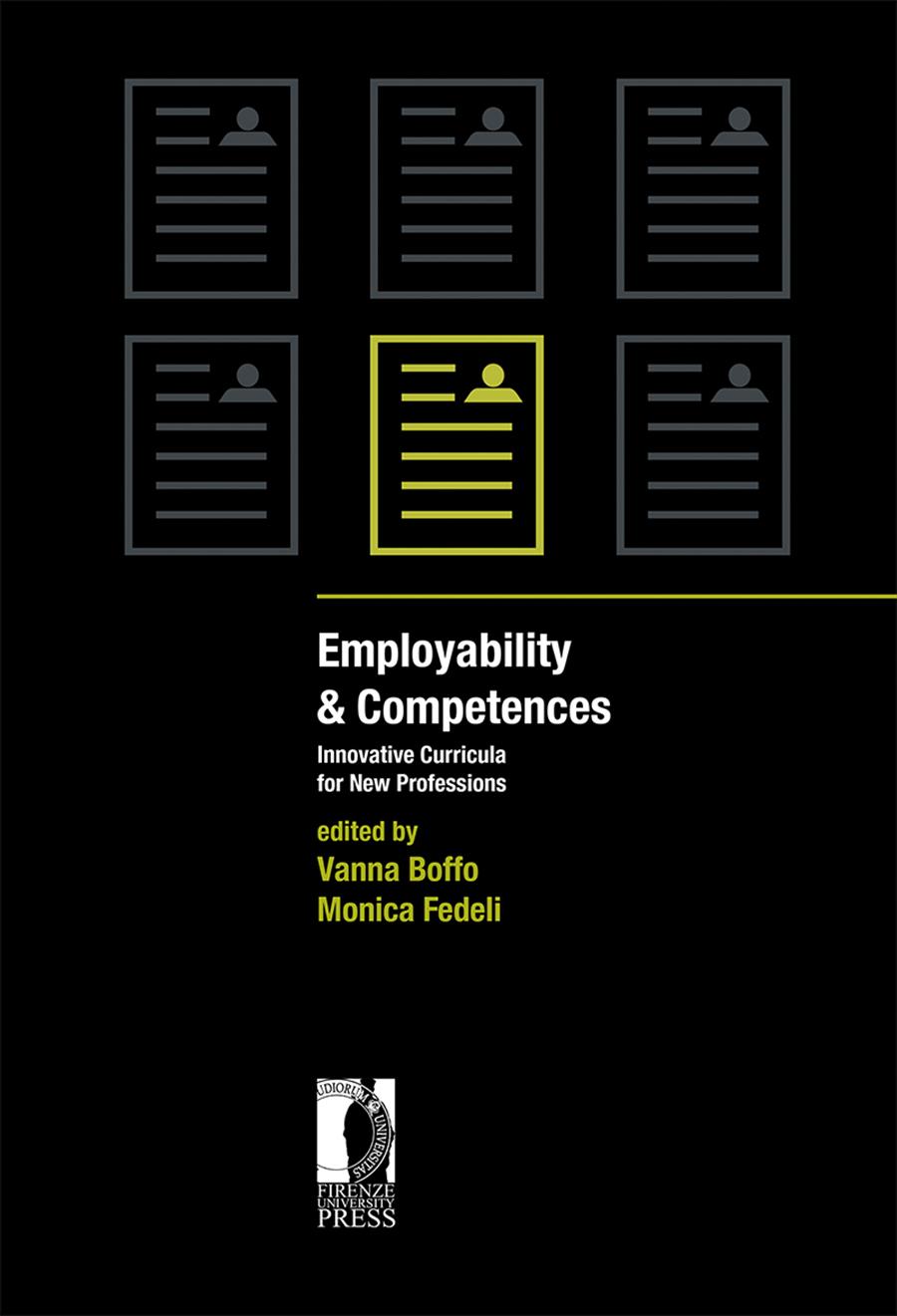- Employability & Competences
- A cura di Vanna Boffo, Monica Fedeli
Insights from the Fields: the Role of Reflection in ‘Learning How to Learn’
- Anna Salerni
- Silvia Zanazzi
- © 2018 Author(s) |
- CC BY 4.0
- DOI: 10.36253/978-88-6453-672-9.32
In experiential learning, on-field experience needs to be processed consciously in order for learning to take place. Reflection plays a crucial role by providing a bridge between practical experience and conceptualization. Despite being a protected environment, university traineeship is a form of experiential learning that offers students a chance to learn from the fields and reflect on a possible future profession. In this paper we present and discuss a research project whose goal is the development of a methodology to educate trainees’ reflective thinking and writing
- Keywords:
- university traineeship,
- experiential learning,
- reflective thinking,
- reflective writing,
- reflective practitioner,
Sapienza University of Rome, Italy
Sapienza University of Rome, Italy - ORCID: 0000-0003-4515-2887
- Bateson G. 1972, Steps to an Ecology of Mind, University of Chicago Press, Chicago.
- Cohen L., Manion L. and Morrison, K. 2011, Research methods in education, Routledge, London.
- Creswell J.W. 1998, Qualitative Inquiry and Research Design. Choosing among five traditions, Sage, London.
- Dewey J. 1933, How we think: A restatement of the relation of reflective thinking to the educative process, Houghton Mifflin Company, Boston.
- Dewey J. 1938, Experience and Education, Collier, New York.
- Flanagan J. 1954, The critical incident technique, «Psychological Bulletin», 51, 327-358.
- Gibbs G. 2013, Learning by doing. A Guide to Teaching and Learning Methods, Oxford Brookes University, Oxford.
- Glaser B. and Strauss A. 1967, The discovery of Grounded Theory: strategies for qualitative research, Aldine de Gruiter, Hawthorne-New York.
- Harris A.S., Bruster B., Peterson B. and Shutt T. 2010, Examining and Facilitating Reflection to Improve Professional Practice, Rowman and Littlefield Publishers Inc., Lanham.
- Hobbs T. (ed.) 1992, Experiential training: practical guidelines, Tavistock-Routledge, London.
- Killion J.P. and Todnem G.R. 1991, A process for personal theory building, «Educational Leadership», XLVIII (6), 14-16.
- Kolb D.A. 1984, Experiential Learning: Experience as the Source of Learning and Development, Prentice Hall, Englewood Cliffs.
- Lave J. and Wenger E. 1991, Legitimate peripheral participation, Cambridge University Press, Cambridge.
- Lewin K. 1946, Action research and minority problems, «Journal of Social Issues», 2, 34-36.
- McClelland D.C. 1973, Testing for competence rather than intelligence, «American Psychologist», 28, 1-14.
- Moon J. 2004, A Handbook of Reflective and Experiential Learning, Routledge, London.
- Moon J. 2006, Learning Journals. A handbook for reflective practice and professional development – 2nd edition, Routledge, London.
- Mortari L. 2003, Apprendere dall’esperienza, Carocci, Roma.
- Murray H.A. 1943, Thematic apperception test, Harvard University Press, Cambridge.
- Piaget J. 1971, Biology and Knowledge, Edinburgh University Press, Edinburgh.
- Salerni A., Sposetti P. and Szpunar G. 2014, Narrative writing and University Internship Program, «Procedia – Social and Behavioral Sciences», 140, 133-137.
- Salerni A., Sposetti P. and Szpunar G. 2013, La narrazione scritta come elemento di valutazione del tirocinio universitario. Narrative writing as an evaluation methodology of University Internship Program, «RPD, Ricerche di Pedagogia e Didattica – Journal of Theories and Research in Education», VIII (2), 9-26.
- Schön D.A. 1983, The Reflective Practitioner: how professionals think in action, Basic Books, New York.
- Schön D.A. 1987, Educating the Reflective Practitioner: Toward a New Design for Teaching and Learning in the Professions, Jossey-Bass, San Francisco.
- Strauss A. and Corbin J. 1994, Grounded theory methodology: an overview, in Denzin N.K. and Lincoln Y. (eds.), Handbook of Qualitative Research. Sage, Thousand Oaks, 273-285.
- Tomassini M. 2007, La riflessività dei professionisti della formazione: verso lo sviluppo di pratiche riflessive in contesti di formazione professionale, in ISFOL, La riflessività nella formazione: modelli e metodi, ISFOL, Roma.
Informazioni sul capitolo
Titolo del capitolo
Insights from the Fields: the Role of Reflection in ‘Learning How to Learn’
Autori
Anna Salerni, Silvia Zanazzi
Lingua
English
DOI
10.36253/978-88-6453-672-9.32
Opera sottoposta a peer review
Anno di pubblicazione
2018
Copyright
© 2018 Author(s)
Licenza d'uso
Licenza dei metadati
Informazioni bibliografiche
Titolo del libro
Employability & Competences
Sottotitolo del libro
Innovative Curricula for New Professions
Curatori
Vanna Boffo, Monica Fedeli
Opera sottoposta a peer review
Numero di pagine
510
Anno di pubblicazione
2018
Copyright
© 2018 Author(s)
Licenza d'uso
Licenza dei metadati
Editore
Firenze University Press
DOI
10.36253/978-88-6453-672-9
ISBN Print
978-88-6453-671-2
eISBN (pdf)
978-88-6453-672-9
eISBN (xml)
978-88-9273-119-6
Collana
Studies on Adult Learning and Education
ISSN della collana
2704-596X
e-ISSN della collana
2704-5781
